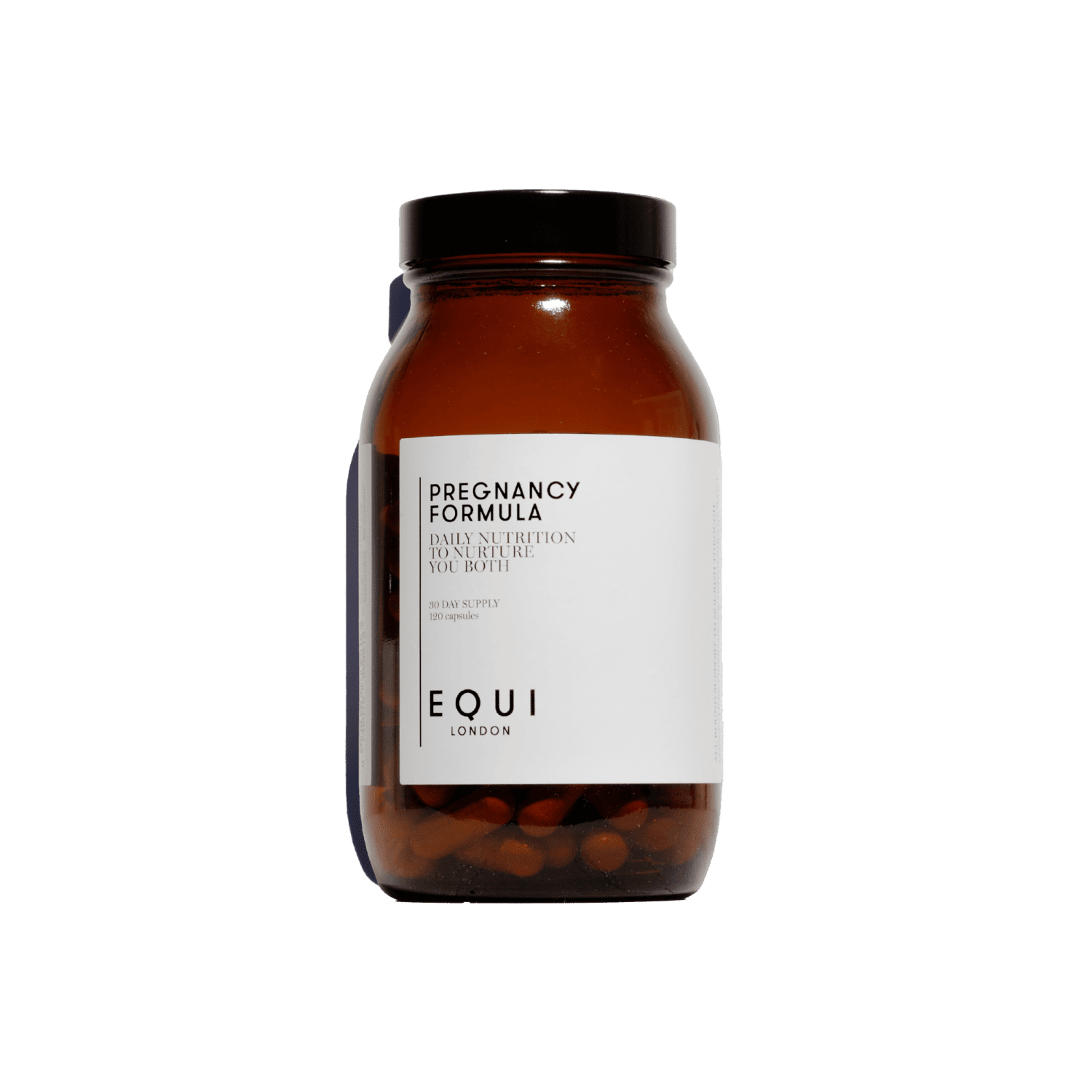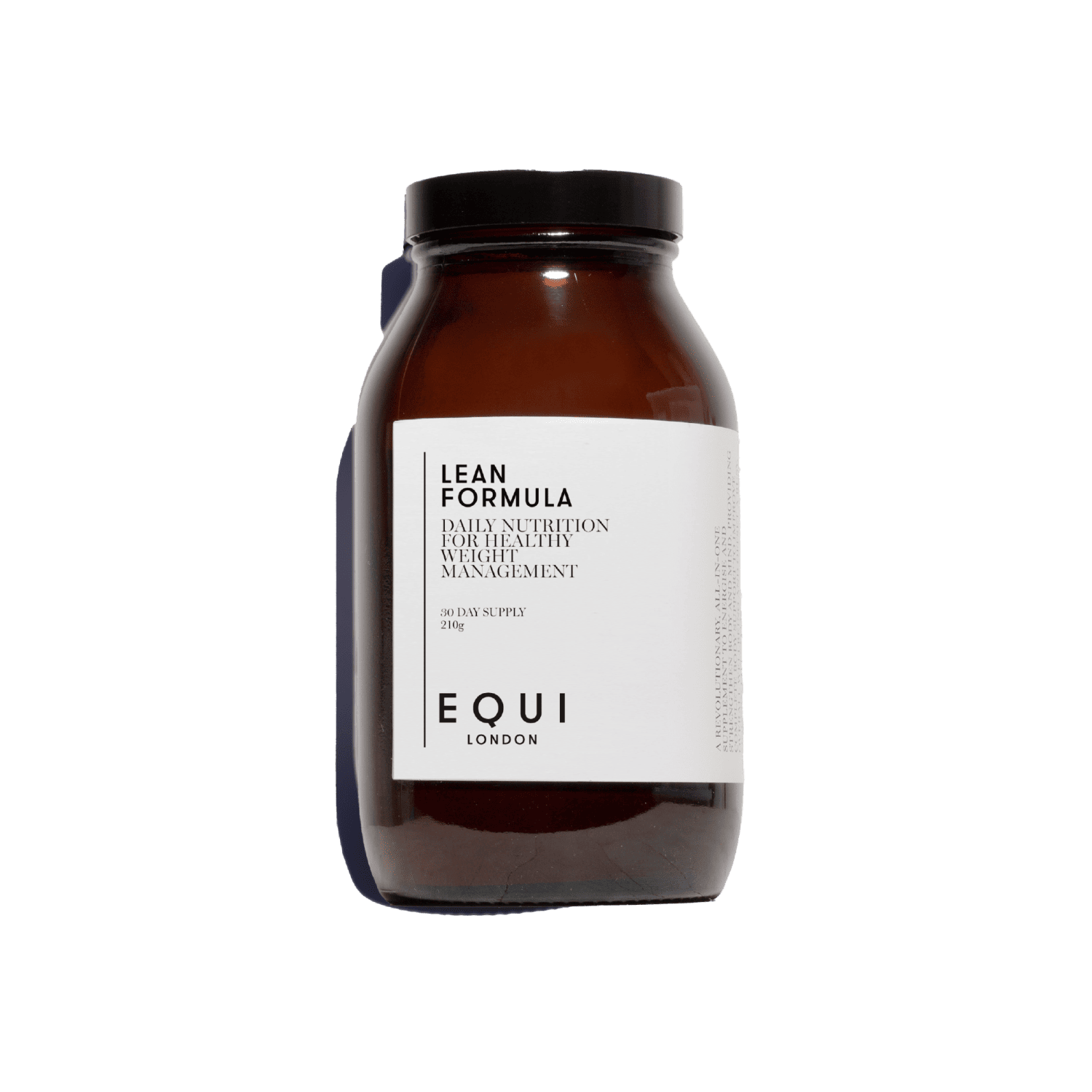
One of the latest wellness trends are nootropics, often dubbed as natural cognitive enhancers, which promise us an enhancement of the brain's capabilities, from memory to motivation. Driven from a desire to optimise cognitive function, to not only achieve more in less time but to also do so with creativity, clarity, and passion. It’s the ultimate wellness goal - a day where productivity doesn't sap our energy but rather bolsters our enthusiasm for the tasks that lie ahead.
But productivity isn't merely about being switched on all the time. It's about intentional action, effective time management, and recognising when our brain needs a breather. This understanding calls for strategies that support both being ‘on’ and not. It requires setting clear boundaries to protect our mental space, scheduling regular breaks to refresh our cognitive reserves, and time-blocking to methodically allocate hours for specific tasks, ensuring that we're giving undivided attention where it's due. In our quest for optimal productivity, food plays an indisputable role. The brain, with all its intricate neurons and neurotransmitters, thrives on the right kind of fuel. Just as a sports car performs best with high-quality fuel, our brain's productivity hinges on specific nutrients and compounds. And this is where nootropics step in. They are believed to boost brain function, helping with memory retention, creativity spurts, and sustained motivation.
But what if you were told that the secrets to cognitive enhancement might already be on your shelf or, perhaps, just a purchase away? Enter EQUI. Our thoughtfully crafted Formulas not only support overall health but also target the brain in multiple, multifaceted ways. Ingredients like Siberian ginseng, cordyceps, and L-tyrosine have long been revered in traditional medicine systems for their brain-boosting properties. Modern research is catching up, validating what ancient herbalists have known for centuries. Meanwhile, choline, turmeric extract, CoQ10, and a blend of essential B vitamins, magnesium, and zinc further augment this nootropic action, offering a female-specific spectrum of bio-available, high-quality vitamins and minerals to bolster your productivity.
So, whether you're a looking to amplify your work performance, or simply someone keen to maximise your daily brainpower, this blog is for you. We'll delve deep into the science of nootropics, unpack the neuroscience of productivity, and offer tangible strategies to make every day a cognitive masterpiece. And, of course, we'll explore the potent ingredients in EQUI Formulas, shedding light on how they can be your secret weapon in the quest for optimal brain function.
The Neuroscience of Productivity - Fuelling the Brain Right
The human brain, whilst only a mere 2% of our body weight, is responsible for an array of functions ranging from regulating heartbeat to our ability to retain information. When our brain operates at peak productivity, it resembles a well-oiled machine, effortlessly working between tasks, storing memories, and sparking creativity. But what fuels this machine, ensuring its optimal function? The answer lies in everything from neuroscience, nutrition, to our everyday choices.
At the heart of productivity is the brain's ability to maintain sustained attention. Neurologically, this is performed by the prefrontal cortex, an area associated with functions like decision-making, problem-solving, and attention control (1). What’s more, neurotransmitters, notably dopamine and norepinephrine, play pivotal roles in attention modulation (2). Ensuring their balance is key to attentional prowess. Certain foods, rich in specific nutrients, can help too. For example, omega-3 fatty acids, abundant in fatty fish like salmon, are known to enhance brain function and protect neuronal cells (3). Flavonoids, found in blueberries, have been associated with improved memory and cognitive functions due to their anti-inflammatory and antioxidant properties (4).
Snacking smart is essential too. Nuts and seeds, such as walnuts and flaxseeds, contain alpha-linolenic acid, a type of Omega-3 that supports brain health. One study found that consuming walnuts improved inferential reasoning, a crucial component of cognitive function (5). Likewise, dark chocolate, rich in flavonoids, caffeine, and antioxidants, can enhance focus and mood (6). Creativity, another facet of productivity, involves the brain's default mode network (DMN), which becomes active when we're engaged in introspection or daydreaming. The right kind of nutrition can also influence this. Lutein and zeaxanthin, found in leafy greens, like kale and cabbage, have been linked with improved intelligence, which aids creative thinking. Moreover, the interplay between glucose and the brain is also worth mentioning. The brain is a major consumer of glucose. Complex carbohydrates, like whole grains and legumes such as brown rice and chickpeas, offer a steady glucose supply, ensuring consistent brain energy and staving off cognitive decline. Incorporating these foods and feeding the brain the right fuel, means we are not merely surviving our busy days; we are thriving through them.
Nootropics - The Potent Power of Natural Productivity Enhancers
Today, where we are often juggling professional life, motherhood, relationships on top of a desire to support our ever-changing health and wellbeing, optimal brain function is non-negotiable. As our understanding of the brains function deepens, the role of nootropics which are natural substances that improve cognitive function, becomes even more prominent. Our Formulas, which replace a shelf of supplements, incorporate an array of natural nootropics to support productivity. Here, we investigate the science behind some of our star ingredients:
Siberian Ginseng
A renowned adaptogen, Siberian ginseng enhances our resilience to stress, a notable productivity killer. It aids in enhancing stamina and combating fatigue, allowing for sustained mental and physical activity. In fact, studies have shown its efficacy in improving mental performance under fatigue (7). By helping the body adapt to stressors, it can promote clarity of thought and improved concentration, thus bolstering overall productivity. Found in both Wellness Formula and Lean Formula, Siberian ginseng will not only help the body adapt to daily stressors but enhance your productivity goals.
Cordyceps Mushroom
Traditionally used for its energy-boosting properties, cordyceps are medicinal mushrooms that have shown potential in enhancing the body’s energy production, improving not only energy but stamina at a cellular level (8). It is believed to increase the production of ATP, the primary molecule for storing and transferring energy in cells. By enhancing cellular energy, cordyceps can lead to increased stamina and reduced fatigue, supporting overall vitality.
Wellness Formula contains cordyceps mushroom, included for its role in supporting immunity and of course, cognitive function.
Amino Acid L-Tyrosine
This amino acid is a precursor to neurotransmitters dopamine, norepinephrine, and epinephrine, which are vital for attention, motivation, and our response to stress. Studies have shown that under conditions of stress and even sleep deprivation, L-tyrosine supplementation has been found to improve cognitive flexibility (9). We have included this amino acid in all Formulas (aside from Pregnancy) so you can be sure that EQUI has your productivity covered.
Choline
Little talked about nutrient choline is critical for the brain. Choline is a precursor to acetylcholine, essential for memory and attention and adequate intake supports neuroprotection and optimal cognitive function throughout life (10). Whilst often overlooked in high street formulations, here at EQUI we recognise the importance of this key nutrient for cognition and have included it in all our Formulas for this very reason!
Turmeric (Curcumin)
Beyond its anti-inflammatory properties, curcumin in turmeric shows promise in enhancing mood, including in depressive disorders. What’s more, its neuroprotective qualities potentially aid memory and cognitive function, supporting productivity. Wellness, Menopause and Beauty Formulas all contain Turmeric extract (95% curcuminoids), thereby enhancing cognitive function and productivity.
CoQ10
Coenzyme Q10 is a naturally occurring compound vital for energy production within our cells, specifically in the mitochondria, often referred to as the cell's "powerhouses." One study emphasized that CoQ10 deficiency can result in fatigue, as ATP production is reduced, leading to diminished cellular function (11). Furthermore, CoQ10 is a potent antioxidant, defending against oxidative stress, which is vital for maintaining optimal brain function. Its role is not limited to energy production: CoQ10 also modulates neurotransmitter systems, ensuring a balanced mood and cognitive health. So, supplementing with CoQ10 can enhance mental energy, combat fatigue, and ensure the balance of neurotransmitters crucial for mood and cognition, which is why we have included CoQ10 in nearly all our Formulas.
B Vitamins
B vitamins are pivotal for overall health, with specific roles in brain function and energy production. Vitamins B6 (pyridoxine), B9 (folate), and B12 (cobalamin) are instrumental in the synthesis of neurotransmitters, which are chemical messengers facilitating brain communication (12). Vitamin B6 is directly involved in producing neurotransmitters like serotonin, which regulates mood, and dopamine, which affects focus and pleasure. Meanwhile, folate aids in the synthesis of dopamine, norepinephrine, and serotonin. Finally, B12 plays a protective role, safeguarding neurons and facilitating neurotransmitter production (13). Ensuring adequate intake of these B vitamins is vital for cognitive health and mood stabilisation, hence why you will find optimal levels of all B vitamins in each EQUI Formula.
Magnesium Bisglycinate
Magnesium plays a pivotal role in brain health, serving as a cofactor for over 300 enzymatic reactions in the body, many of which are essential for optimal neuronal function. It aids in regulating neurotransmitters, which facilitate brain cell communication (14). On the other hand, magnesium deficiency has been associated with various neurological disorders, including migraines, depression, and anxiety (15). The bisglycinate form, known for its superior absorption and bioavailability, ensures that the brain receives the necessary magnesium it requires for optimal function, making it our preferred choice when formulating each of our Formulas.
Zinc
Zinc, an essential trace mineral, plays a key role in brain function. It is crucial for the structure and function of numerous proteins and enzymes involved in neurotransmission. Zinc is vital for learning and memory processes in the brain (16). It also modulates neurotransmission, influencing how brain cells communicate. Zinc acts at the synapses in the hippocampus, a region of the brain central to memory and learning. Insufficient levels have been linked to impaired cognition, attention deficits, and memory disturbances, so supplementing zinc may be paramount for cognitive health. In fact, recent research emphasises the significance of zinc in neuroprotection and its potential to combat neurodegenerative diseases (17). As key player in cognitive health, we have included optimal levels of at least 10-15mg zinc in each of our Formulas.
The brilliance of our Formulas lies not just in these individual components but in their synergistic interactions. Ingredients like L-tyrosine and B vitamins work together to ensure neurotransmitter balance for attention and motivation, while adaptogens like Siberian ginseng and cordyceps offer resilience against stress, ensuring sustained productivity. Magnesium and zinc ensure optimal brain function, directly influencing learning and memory. By incorporating these scientifically backed natural nootropics, EQUI offers comprehensive support to supercharge productivity, making it not just any supplement, but a cognitive ally.
The Art of Time-Blocking and Scheduled Breaks
The modern work environment demands multifaceted skills and exceptional time management. One effective strategy that's been a game-changer for us here at EQUI is time-blocking. Time-blocking is the practice of assigning specific tasks to distinct blocks of time in your calendar, ensures that you're always laser-focused on what needs your attention. Here are our top tips to support productivity through time-blocking and scheduled breaks:
- Lay the Groundwork - Before diving into time-blocking, it's pivotal at first to list out all tasks for the day, week, or month. Categorise them by priority, duration, and their nature (e.g., brainstorming, admin tasks, emails, networking etc).
- Allocating Blocks – Next, assign each task a specific block of time in your calendar. This serves two purposes: firstly, it designates uninterrupted focus time for tasks, eliminating multi-tasking inefficiencies. Secondly, by visually seeing your day segmented, it's easier to maintain a rhythm and prevent procrastination.
- Scheduling Breaks - The brain, just like any muscle, tires with continuous exertion. So, interspersing work blocks with short breaks is crucial. It's here that the renowned Pomodoro Technique comes into play. Developed by Francesco Cirillo in the 1980s, this method involves working intensively for 25 minutes and then taking a five-minute break. After four cycles, you take a longer, 15-30 minute break. Studies have shown this cyclical pattern can bolster concentration and spur productivity by creating a sense of urgency and providing regular rest for the brain (18).
- Embrace Flexibility - While time-blocking is about structure, it's equally vital to remain adaptable. Unexpected meetings, emergencies, or task overflows are inevitable. Having 'buffer blocks' or open periods allows for these contingencies, ensuring that the day's rhythm isn't entirely disrupted. For example, ensure you keep 2-3 hours free per day where possible to account for this.
- Review and Refine - At the end of the week, evaluate your time-blocked schedule. Were there tasks you consistently overestimated or underestimated time for? Adjusting block durations based on these observations ensures continuous refinement of the process.
- Beyond Work - Time-blocking isn't limited to professional tasks. Incorporating personal activities, be it exercise, reading, or family time, emphasises work-life balance. It's a reminder that personal rejuvenation is equally pivotal for overall productivity.
So, we can see that time-blocking, when combined with strategic breaks like those in the Pomodoro Technique, offers a holistic approach to productivity. It's not about working longer but working smarter, ensuring every minute counts without draining one's mental reserves.
Striking the Balance
In our hyper-connected world, striking the balance between work and personal life has become more challenging than ever. With remote work and the nature of digital communication which often blur the boundaries, it can make us feel like we're "always on." But for our mental health, productivity, and overall well-being, establishing clear boundaries is non-negotiable.
Work without boundaries often leads to burnout—a state of chronic workplace stress with feelings of energy depletion, increased negativity, and reduced efficacy. The constant barrage of work demands, combined with no time for personal rejuvenation, is not just bad for our productivity, it’s also bad for our health. Here are some strategies for boundary setting:
Try a Digital Detox - It's pivotal to set periods where you're digitally unreachable. And this is backed up by science too! One study found that those who underwent digital detoxes experienced increased levels of concentration, were more productive, and felt rejuvenated (19). This might mean no emails after 7pm or not checking work messages during weekends.
Dedicated Workspaces - Especially for remote workers, having a designated workspace can mentally help differentiate "work time" from "personal time". When you leave this space, work ends, and personal life begins, which is often much trickier when working from home.
Scheduled Breaks – As mentioned, intermittent breaks during work not only boost productivity but also ensure you aren’t constantly “on”. Techniques like the Pomodoro Technique, which recommends 25-minute focused work sessions followed by a 5-minute break, can be particularly effective.
Clear Communication - Communicate your working hours to colleagues. If you won't be available after certain hours or on weekends, make sure your team knows. This sets expectations and reduces potential frustrations. It’s such a simple idea but one that you will thank for us for later!
Value Downtime - Recognise that downtime isn’t wasted time. It’s restorative. Activities like reading, meditating, or simply doing nothing are paramount for cognitive function and emotional balance. It could be as simple as having a quiet weekend or attending a wellness retreat which encourages relaxation.
EQUI Formulas are not just another supplement range; they represent a comprehensive strategy to optimise well-being by targeting each of the 10 systems in the body. At the heart of our philosophy is the understanding that a harmoniously functioning body is foundational to peak mental performance and productivity. Each system in the body – from the nervous to the muscular – plays a pivotal role in how we feel, think, and operate daily. Any imbalance can lead to fatigue, stress, or a decrease in cognitive abilities. Each Formula is meticulously designed to provide the necessary nutrients that cater to each of these systems, ensuring EQUI-librium and enhanced function.
The brain, as our command centre, thrives when the rest of the body is in balance. EQUI recognises this interdependence. Moreover, a body in balance is more resilient to stress, better equipped to manage challenges, and more efficient in processing information—all of which contribute significantly to productivity. In a world where the demands on our time and attention are ever-increasing, our Formulas offer a way to remain at the top of our game by ensuring that every system in our body gets the support it needs. By nourishing each system, it paves the way for enhanced well-being and, by extension, improved productivity.
References
-
D'Esposito, M., & Postle, B. R. (2015). The cognitive neuroscience of working memory. Annual Review of Psychology, 66, pp. 115-142.
-
Robbins, T. W., & Arnsten, A. F. (2009). The neuropsychopharmacology of fronto-executive function: monoaminergic modulation. Annual Review of Neuroscience, 32, pp. 267-287.
-
Gómez-Pinilla, F. (2008). Brain foods: the effects of nutrients on brain function. Nature Reviews Neuroscience, 9(7), pp. 568-578.
-
Spencer, J. P. (2009). Flavonoids and brain health: multiple effects underpinned by common mechanisms. Genes & Nutrition, 4(4), pp. 243-250.
-
Pribis, P., Bailey, R. N., Russell, A. A., Kilsby, M. A., Hernandez, M., Craig, W. J., ... & Sabaté, J. (2012). Effects of walnut consumption on cognitive performance in young adults. British Journal of Nutrition, 107(9), pp. 1393-1401.
-
Scholey, A., French, S. J., Morris, P. J., Kennedy, D. O., Milne, A. L., & Haskell, C. F. (2010). Consumption of cocoa flavanols results in acute improvements in mood and cognitive performance during sustained mental effort. Journal of Psychopharmacology, 24(10), pp. 1505-1514.
-
Panossian, A., Wikman, G., & Wagner, H. (2010). Adaptogens exert a stress-protective effect by modulation of expression of molecular chaperones. Phytomedicine, 7(4), pp. 245-252.
-
Zhou, X., Gong, Z., Su, Y., Lin, J., & Tang, K. (2009). Cordyceps fungi: natural products, pharmacological functions and developmental products. Journal of Pharmacy and Pharmacology, 61(3), pp. 279-291.
-
Jongkees, B. J., Hommel, B., Kühn, S., & Colzato, L. S. (2015). Effect of tyrosine supplementation on clinical and healthy populations under stress or cognitive demands—A review. Journal of Psychiatric Research, 70, pp. 50-57.
-
Poly, C., Massaro, J. M., Seshadri, S., Wolf, P. A., Cho, E., Krall, E., ... & Au, R. (2011). The relation of dietary choline to cognitive performance and white-matter hyperintensity in the Framingham Offspring Cohort. The American journal of clinical nutrition, 94(6), pp. 1584-1591.
-
Hernandez-Camacho, J. D., Bernier, M., Lopez-Lluch, G., & Navas, P. (2018). Coenzyme Q10 Supplementation in Aging and Disease. Frontiers in Physiology, 9, p. 44.
-
Kennedy, D.O. (2016). B Vitamins and the Brain: Mechanisms, Dose and Efficacy – A Review. Nutrients, 8(2), p. 68.
-
Stover, P.J. (2017). Vitamin B12 and older adults. Current Opinion in Clinical Nutrition and Metabolic Care, 13(1), pp. 24-27.
-
Cuciureanu, M.D., & Vink, R. (2011). Magnesium and stress. In Magnesium in the Central Nervous System (pp. 251-268). University of Adelaide Press.
-
Kirkland, A.E., Sarlo, G.L., & Holton, K.F. (2018). The Role of Magnesium in Neurological Disorders. Nutrients, 10(6), p. 730.
-
Takeda, A. (2010). Movement of zinc and its functional significance in the brain. Brain Research Reviews, 62(1), pp. 137-148.
-
Railey, A. M., Micheli, T. L., Wanschura, P. B., & Flinn, J. M. (2010). Alterations in fear response and spatial memory in pre- and post-natal zinc supplemented rats: remediation by copper. Physiology & behaviour, 100(4), pp. 440-450.
-
Cirillo, F. (2018). The Pomodoro Technique: The Acclaimed Time-Management System That Has Transformed How We Work. Currency.
-
Duke, É., & Montag, C. (2017). Smartphone addiction, daily interruptions and self-reported productivity. Addictive Behaviors Reports, 6, pp. 90-95.




